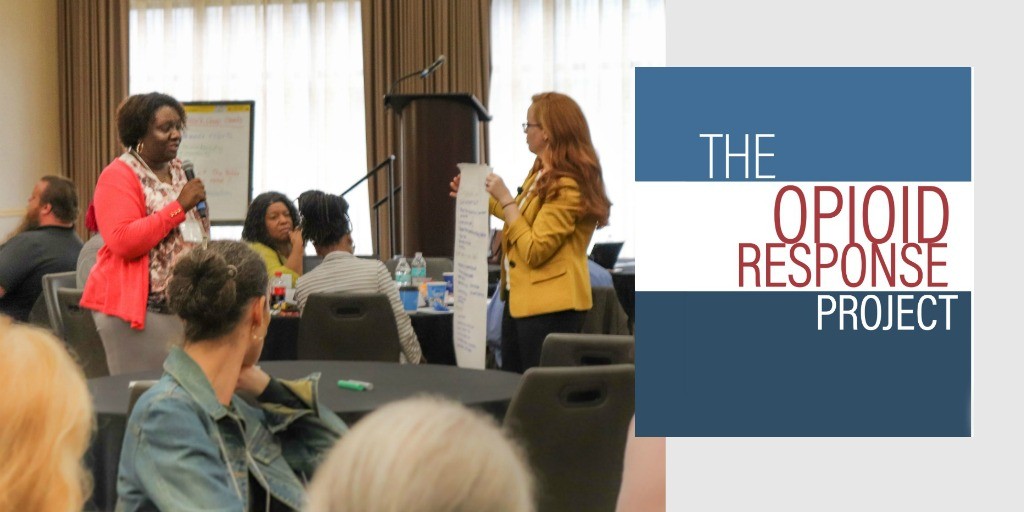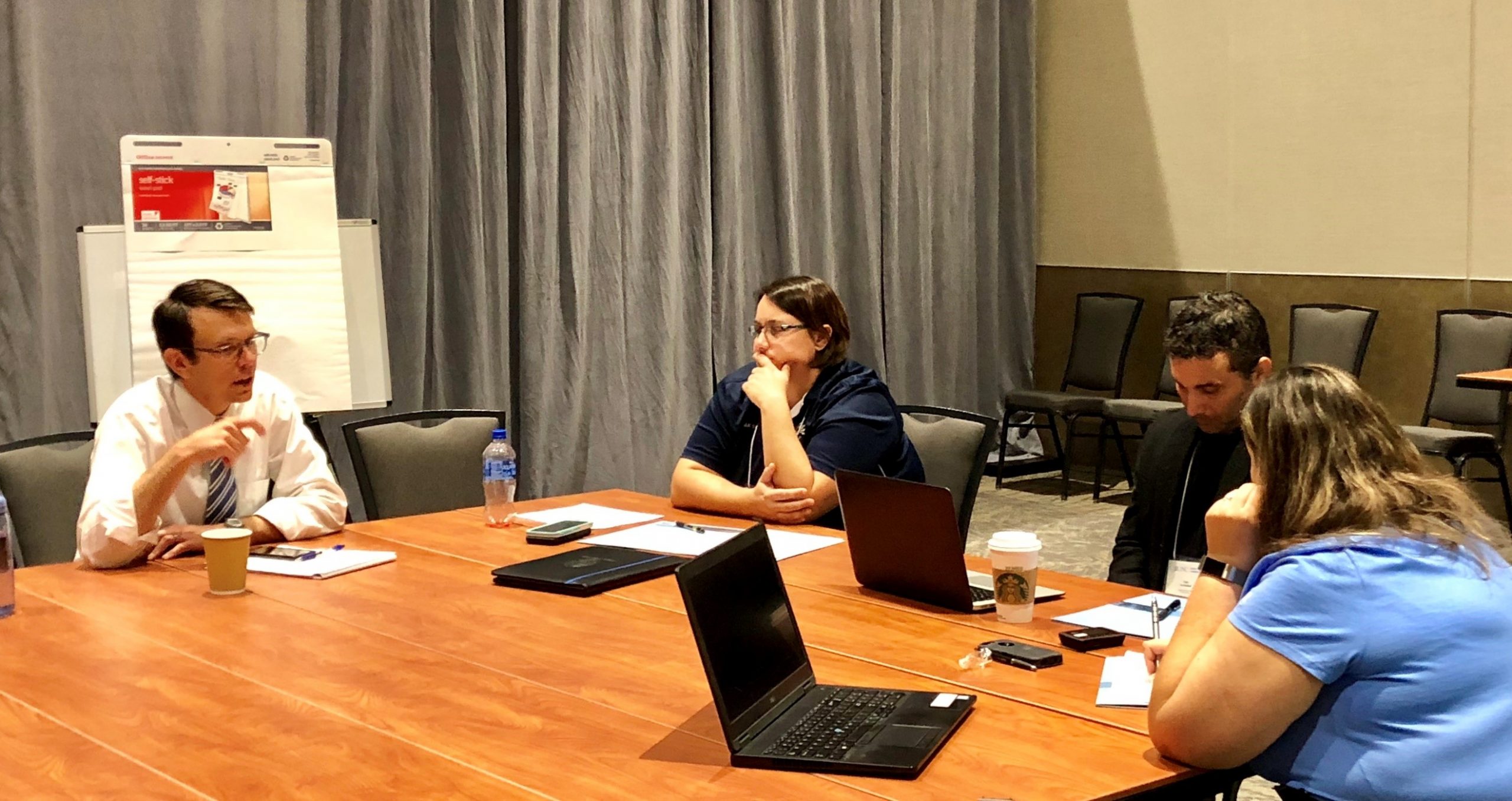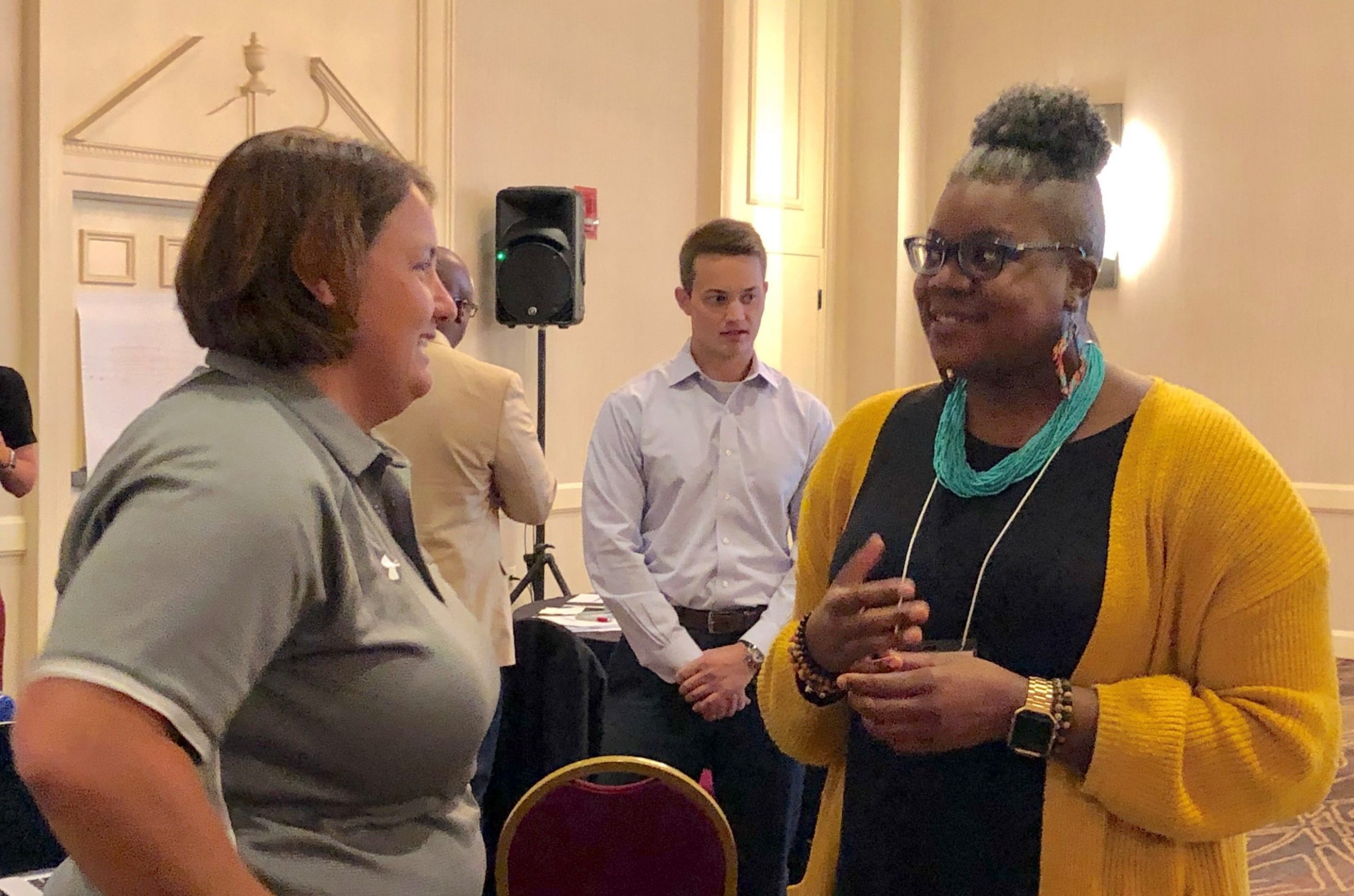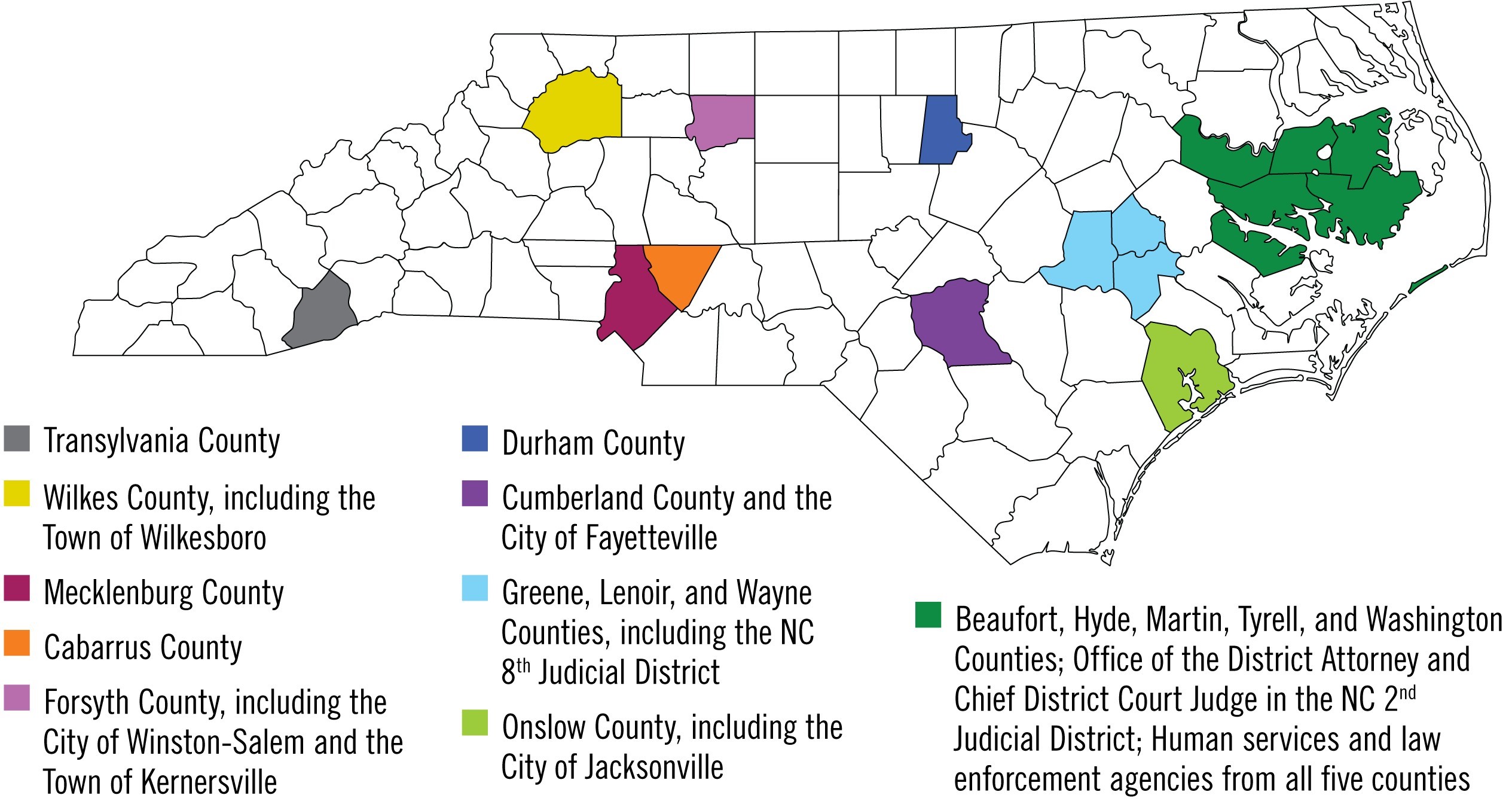Forsyth Opioid Project Team Spotlight
Making new connections and sharing resources are the primary benefits from the Forsyth team’s experience with the Opioid Response Project. “We need new ways to rethink how we work,” said project manager Amanda Clark, a health educator with the Forsyth Department of Health. “There are resources out there but finding out what works well and how to implement new ideas can be a challenge. This project helped connect us, bringing the right people to the table to tackle big issues in new ways.”

Co-Author: Mary Parry
Increasing overdoses and substance use issues in the community prompted Forsyth County leaders to take action in 2017. They held an opioid forum at Green Street Church in Winston-Salem, bringing together elected officials, law enforcement leaders, first responders, religious leaders, and community members to determine a path forward for their county. From that forum, an opioid task force formed to help stakeholders communicate about needs and possible solutions. With so many connected issues emerging from the opioid crisis, the task force formed sub-working groups to begin exchanging information about how different populations were impacted, from law enforcement and treatment facilities responding to the crisis, to parents and children hurt by addiction. Their mission felt daunting, but the community was dedicated to making a difference together.
With around 80 people on their task force, leaders found it initially challenging to work toward big changes or to get a sense for moving in the right direction. “The Opioid Response Project came along at the right time,” said Tony Lo Giudice, assistant public health director in Forsyth County. “The UNC School of Government was able to offer tools that kept our team anchored and engaged, so that we could remain energized and up-to-date as a team.”
The Forsyth Opioid Project Team focused their early efforts into promoting harm reduction and acting as a liaison with emergency management. They are most proud of their support for syringe exchange programs in the area and helping groups like the Twin City Harm Reduction Collective emerge and grow. Now a stand-alone non-profit, Twin City Harm Reduction Collective is fully operational and mobile, offering supplies and education to improve public health. “Being mobile became essential because of the pandemic,” said Lo Giudice.
The COVID-19 pandemic created new challenges for communities. For the Forsyth team, the ability to educate residents about safety during the pandemic through mobile services became invaluable. They distribute educational materials and help people understand how to take precautions to avoid illness. According to project manager Amanda Clark, a health educator with the Forsyth Department of Health, the question of the moment became, “How can we get creative so that we can continue to operate and work toward our goals?”
 Making new connections and sharing resources are the primary benefits from the Forsyth team’s experience with the Opioid Response Project. “We need new ways to rethink how we work,” said Clark. “There are resources out there but finding out what works well and how to implement new ideas can be a challenge. This project helped connect us, bringing the right people to the table to tackle big issues in new ways.”
Making new connections and sharing resources are the primary benefits from the Forsyth team’s experience with the Opioid Response Project. “We need new ways to rethink how we work,” said Clark. “There are resources out there but finding out what works well and how to implement new ideas can be a challenge. This project helped connect us, bringing the right people to the table to tackle big issues in new ways.”
Word travels quickly about successes stemming from the work of the Forsyth team. “Winston-Salem is a hub, with people coming to the area from surrounding counties,” said Clark. “We have the opportunity to create real change through this work, in and around our community.”
To learn more about the Opioid Response Project coordinated by the ncIMPACT Initiative, please visit: https://www.sog.unc.edu/opioidresponseproject.


